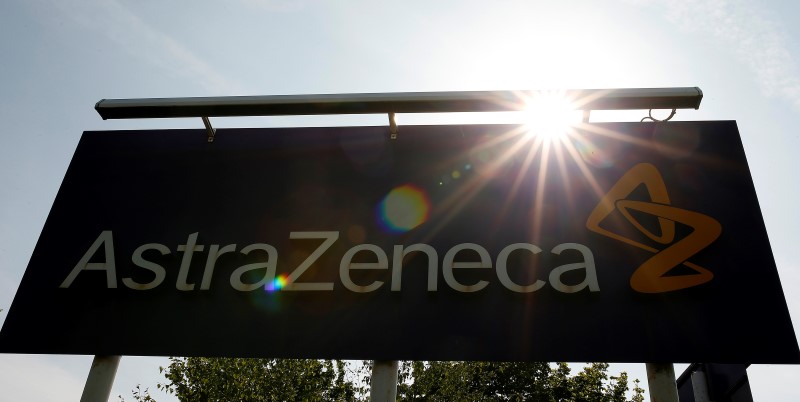By Ben Hirschler
LONDON (Reuters) - AstraZeneca (L:AZN) hopes to convince doctors its experimental injection for severe asthma has an edge over two approved rivals after clinical trials data on Monday showed it worked well when given just once every two months.
The drugmaker has previously flagged benralizumab, which is likely to reach the market next year, as a potential $2 billion(£1.50 billion)-a-year seller.
In contrast to GlaxoSmithKline's (L:GSK) Nucala and Teva's (TA:TEVA) Cinqair - two other recently launched antibody treatments for severe asthmatics - benralizumab works directly to kill off inflammatory cells called eosinophils.
Researchers, writing in The Lancet medical journal, said this meant eosinophil counts were nearly completely depleted after four weeks of treatment.
AstraZeneca had reported in May that two pivotal Phase III clinical trials with the biotech medicine met their goals, but full details were only released at the annual meeting of the European Respiratory Society in London this week.
Overall, a year’s course of benralizumab injections cut the rate of serious attacks, known as exacerbations, by between a third and a half in patients with eosinophil-driven asthma who were already making optimal use of inhalers, the data showed.
Researchers said this was "comparable" to results with Nucala and Cinqair, although it was difficult to draw direct comparisons because of patient differences, with some benralizumab patients less sick than those in rival studies.
Importantly, dosing every eight weeks proved just as effective as treatment every four weeks, which should give benralizumab an advantage as rivals must be taken monthly.
Dr Mario Castro of Washington University School of Medicine, who was not involved in the company-funded studies, said in a commentary that less frequent dosing should save money. It might also allow the drug to be used earlier and be given to children.
AstraZeneca badly needs new drugs to drive future sales as it copes with patent expiries on older medicines, such as its cholesterol fighter Crestor and stomach acid pill Nexium. Although most focus is on its cancer portfolio, the company also has a long history in respiratory medicine.
Tom Keith-Roach, head of the respiratory, inflammation and autoimmune business, sees treating uncontrolled severe asthma as a big opportunity, since this relatively small group of patients accounts for half of all asthma-related healthcare costs.
"Analysts estimate the severe asthma biologics market by the early 2020s to be between $6.5 billion and $10 billion (a year), and we expect to have a competitive share of that based on this clinical profile," Keith-Roach said.
Analysts' consensus sales forecasts for benralizumab currently stand at $485 million in 2021, according to Thomson Reuters Cortellis, against the $2 billion predicted by AstraZeneca in 2014.

The company gave its bullish forecast for benralizumab, along with many other pipeline products, at the time of Pfizer's (N:PFE) unsuccessful attempt to acquire it.